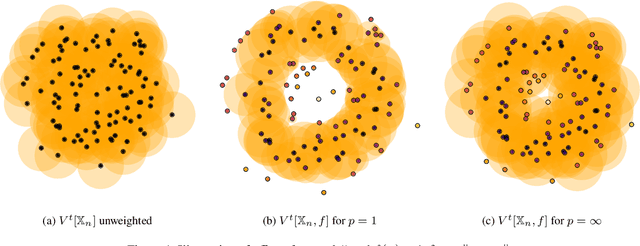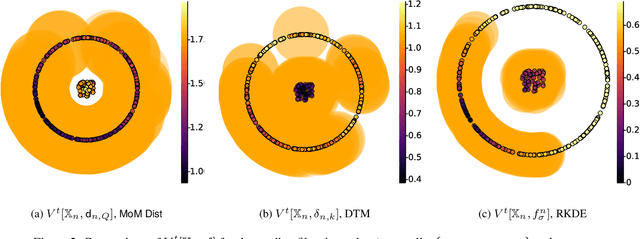Robust Topological Inference in the Presence of Outliers
Paper and Code
Jun 03, 2022



The distance function to a compact set plays a crucial role in the paradigm of topological data analysis. In particular, the sublevel sets of the distance function are used in the computation of persistent homology -- a backbone of the topological data analysis pipeline. Despite its stability to perturbations in the Hausdorff distance, persistent homology is highly sensitive to outliers. In this work, we develop a framework of statistical inference for persistent homology in the presence of outliers. Drawing inspiration from recent developments in robust statistics, we propose a $\textit{median-of-means}$ variant of the distance function ($\textsf{MoM Dist}$), and establish its statistical properties. In particular, we show that, even in the presence of outliers, the sublevel filtrations and weighted filtrations induced by $\textsf{MoM Dist}$ are both consistent estimators of the true underlying population counterpart, and their rates of convergence in the bottleneck metric are controlled by the fraction of outliers in the data. Finally, we demonstrate the advantages of the proposed methodology through simulations and applications.
 Add to Chrome
Add to Chrome Add to Firefox
Add to Firefox Add to Edge
Add to Edge